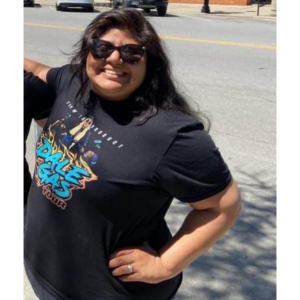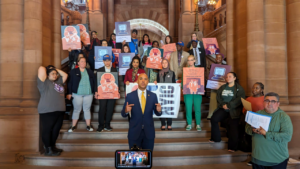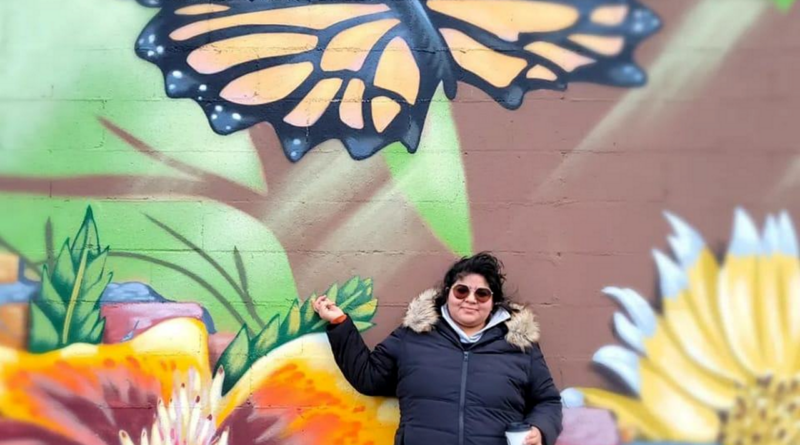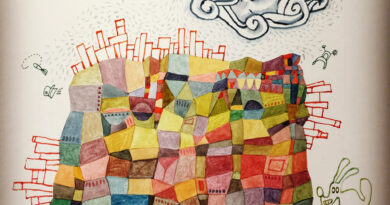Privilege and Vulnerabilities
#LatinaHerstory
by Talia Rodriguez
 My son is a six-year-old CEO. We started a brand because he likes art and I found it easier to teach him if we centered our energies around a shared project. It’s going amazing, www.buffalokidceo.com. if you want to learn about his bilingual socio emotional coloring books and his mission to tell the worlds that #KIDS #CAN #BE #CEOS too!
My son is a six-year-old CEO. We started a brand because he likes art and I found it easier to teach him if we centered our energies around a shared project. It’s going amazing, www.buffalokidceo.com. if you want to learn about his bilingual socio emotional coloring books and his mission to tell the worlds that #KIDS #CAN #BE #CEOS too!
Since things are going well, but the world around us is changing and he is a very LATINO child, with a Latino name, he’s taller, shyer and a little bit bigger, it’s time to have the “talk” with him. It’s time to explain different parts of his privilege and some of his vulnerabilities to him. I want him to be able to explain his privilege like Cassy.
Cassandra talks about her privilege in her interview: An excerpt of her response to the question: “I am a first generation Mexican American, a Tejana/Chicana and the eldest daughter in my family. I was born in McAllen Texas about 20 minutes from the Laredo border crossing. Growing up, I was always a headstrong and stubborn child to the point that if I truly wanted something nothing would stop me.”
Cassandra is the Manager of Organizing and Strategy Finger Lakes at the New York Immigration Coalition, I met her on zoom and instantly started pursuing a feature. We talked on the phone, and I felt braver after, I felt freer, and I was like ok this is perfect because I write with my heart, I need features that inspire me personally (kind of selfish right)?
Cassy talks about her privilege: “Since I was born in Texas and had the privilege of being documented I was taught to appreciate that privilege and use it to speak up when I saw injustices in my community. My parents are both undocumented immigrants, so there are certain things that I can do that my parents and others in my community could not. My parents fostered a home and environment where we helped each other and others when we could.
As an American, my mother, white as snow, as she is, taught me the right thing is to love liberty and to love people who were willing to fight for it. I won’t ever change that, and teaching lessons and showing parts of worlds I advocate for but am not a part of is easier with art. Organizations like New York Immigrant Coalition are supporting an entire universe of artists who are willing to spend their careers making art about people AMERICAN enough to love the red, White, and blue through the other side of the fence of oppression.
 Enter films like “After I Pick the Fruit” made about the lives of my sister Latinas in 2011. Enter films like “From Here” debuting on the World Channel – America Reframed Strand of PBS on June 1st at 8pm ET. Director Christina Antonakos Wallace, Taina Mattos are people to watch just like Cassandra.
Enter films like “After I Pick the Fruit” made about the lives of my sister Latinas in 2011. Enter films like “From Here” debuting on the World Channel – America Reframed Strand of PBS on June 1st at 8pm ET. Director Christina Antonakos Wallace, Taina Mattos are people to watch just like Cassandra.
How do we teach our children and the adults around them empathy? How do we teach our children to lead? We will be talking about it all month, with Cassy, who is not a mom yet but is a PROUD BIG SISTER, shout out to the big sisters/mothers out there. I have two but one specifically showed out for me.
She used to tell me “What God has for you – is for you.” What’s God’s got for me is a good old AMERICAN desire to fight for what I think is right. It’s not just for me, I have ancestors to honor, William Cary, my 2nd great uncle (son of ORANGE county New York) left his body on the battlefield at the Battle of Dallas, at 30 years old and it broke his mother’s heart, an immigrant from Scotland. He believed in liberty, so do I, and there’s enough LIBERTY here for all of us and I’m going to keep writing about it until I am blue in the face, just as blue as my uncle’s union uniform.
Read the rest of Cassy’s interview below and learn the story of all American show me don’t tell me kinda leader.
1. Who are you and what values were taught in your home? – My name is Cassandra Bocanegra, I am a first generation Mexican American, a Tejana/Chicana and the eldest daughter in my family. I was born in McAllen Texas about 20 minutes from the Laredo border crossing. Growing up, I was always a headstrong and stubborn child to the point that if I truly wanted something nothing would stop me. Although I’m sure that it terrified them to have such a headstrong child, my parents never discouraged that trait. Since I was born in Texas and had the privilege of being documented I was taught to appreciate that privilege and use it to speak up when I saw injustices in my community. My parents are both undocumented immigrants, so there are certain things that I can do that my parents and others in my community could not. My parents fostered a home and environment where we helped each other and others when we could.
2. What was your experience as a student and your favorite learning moment growing up? – When we arrived in the NYS in 1999 we lived in the inner city of Rochester. I didn’t know any English and spent 6 months in a bilingual school before we were able to move to a suburb of Rochester where I went to elementary and middle school. The suburb of Greece did not have much diversity so there were not many students at my schools that looked like me or that had parents that didn’t speak English. Often, I was the interpreter for my family at many school functions. When I was in Middle school, I decided that I wasn’t being challenged enough and sought out a scholarship to a private all girls’ high school. The diversity did not get better. I ended up graduating from there and attending SUNY Geneseo as an EOP student and was a first-generation college student. My experience in college was very stressful. Between my freshman and sophomore year my parents were picked up by immigration and their deportation proceedings were started. That meant that there was more on my plate and more responsibilities that I had to take care of on top of being a student. I was lucky enough to receive support from some amazing professors who I was able to talk things through with and who offered support and encouragement for me to continue my studies. I think my favorite learning moment growing up was when I really wanted to volunteer at a teen book fair and my mother said she couldn’t take me so I figured out how to get there myself and made it there and back on my own. I was 13 and had the best time and was able to meet one of my favorite authors Matt De la Pena (Mexican white boy and Ball don’t lie) and Holly Black.
3. Do you see yourself as a leader? If so, why? – At times I do but I am hesitant to label myself as that since I know that I have much to learn. I think other people would call me a leader and maybe someday I will be able to agree with them. At this time, I can only say that I am learning how to be a better version of myself and how to lead myself towards my goals.
4. How do you define an advocate and an ally? How do you see the future of your advocacy growing? – I would define an advocate and an ally the same. I believe that you have to be an ally in order to be a good advocate and you have to be an advocate in order to be a good ally. An advocate stands on the front lines and uplifts and works to end the marginalization of a community and part of doing that is being an ally who supports and hears what the struggling are without assuming that they know best. I think allies are only better when they are able to advocate for voices to be heard in a way that doesn’t take up space. For example, one of my favorite ways that I have seen an ally advocate for me was when they saw that I was struggling to be heard in a new space and brought attention to the fact that I was not being listened to as a Latina. There is a fine line but I think it is easily blurred when it comes to a community. I think allies are also people who maybe have not experienced the same traumas and hurdles that people in a community have and who use their privilege to make space for those communities and advocates are allies or directly impacted community members that are tired of only listening and ready to lead the charge in making change happen.
5. Do you have a role model? If yes, who? What type of role model do you hope to be for future generations? – I do! My role models are my mom and my grandmothers. They are all strong women who have continuously gone against the current to achieve more for themselves than what their society/generation expected. I hope that if anyone does see me as a role model, they see me as human. I want anyone who looks up to me to see that it is okay to make mistakes and to fall because that is part of growing and learning, it is much more important to learn from that and to pick yourself up and keep moving forward. Being a leader or a role model doesn’t mean that you are perfect, to me it means that you keep moving forward with humility, grace and strength.
Talia Rodriguez is a bi-racial, bi-cultural, and bi-lingual Latina from Buffalo. Ms. Rodriguez’s mission is to write about Latina’s, who have shaped the face of our city and our region. It is Ms. Rodriguez’s believes that our own people should inspire us and in telling our collective stories, we push our community forward. Ms. Rodriguez is a community advocate and organizer. She is a 5th generation West Sider, a graduate of SUNY Buffalo Law School, and an avid baseball fan. She lives on the West Side with her young son A.J… Ms. Rodriguez sits on the board of several organizations including the Belle Center, where she attended daycare. Ms. Rodriguez loves art, music, food, and her neighbors.
the face of our city and our region. It is Ms. Rodriguez’s believes that our own people should inspire us and in telling our collective stories, we push our community forward. Ms. Rodriguez is a community advocate and organizer. She is a 5th generation West Sider, a graduate of SUNY Buffalo Law School, and an avid baseball fan. She lives on the West Side with her young son A.J… Ms. Rodriguez sits on the board of several organizations including the Belle Center, where she attended daycare. Ms. Rodriguez loves art, music, food, and her neighbors.

